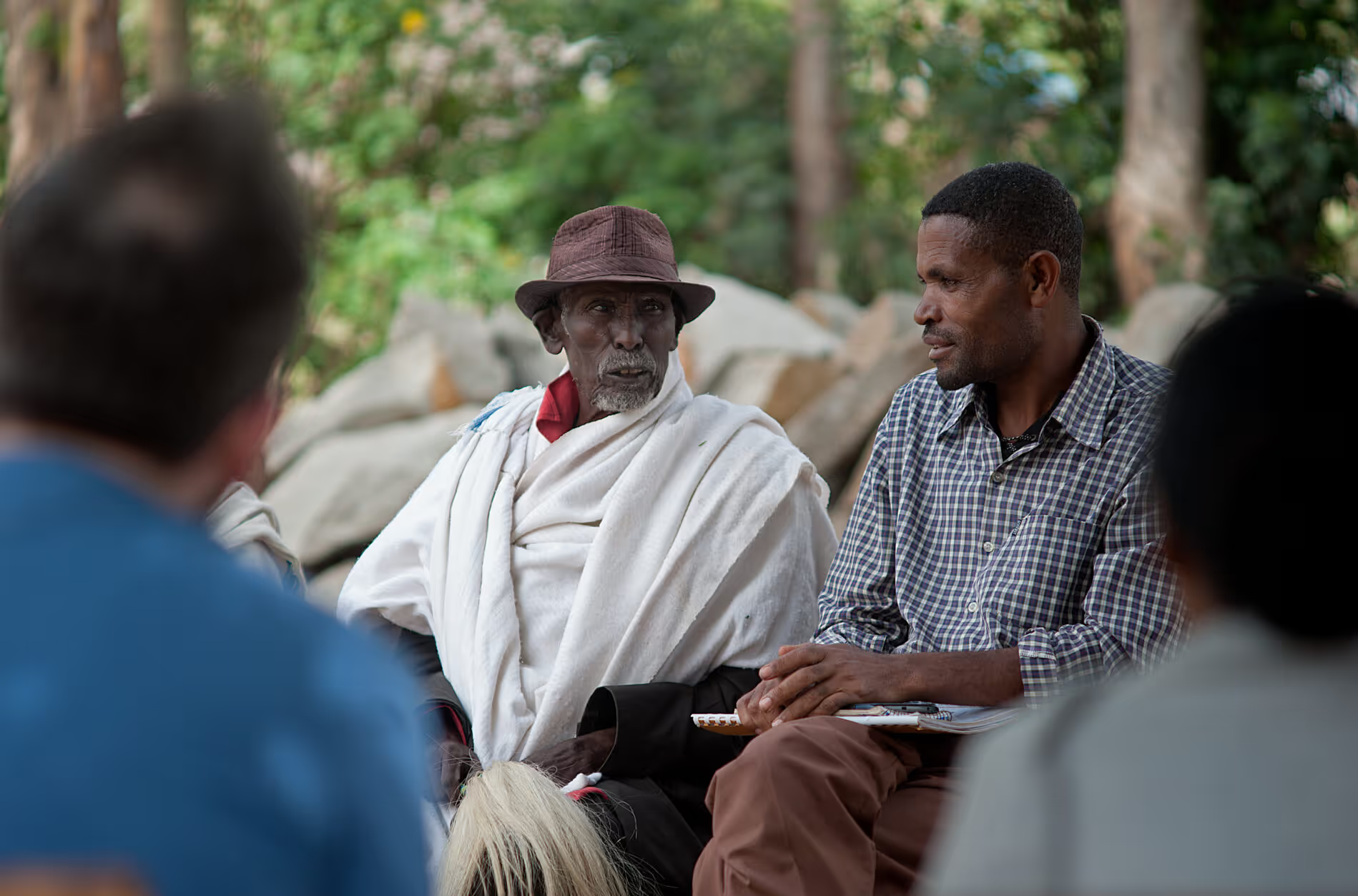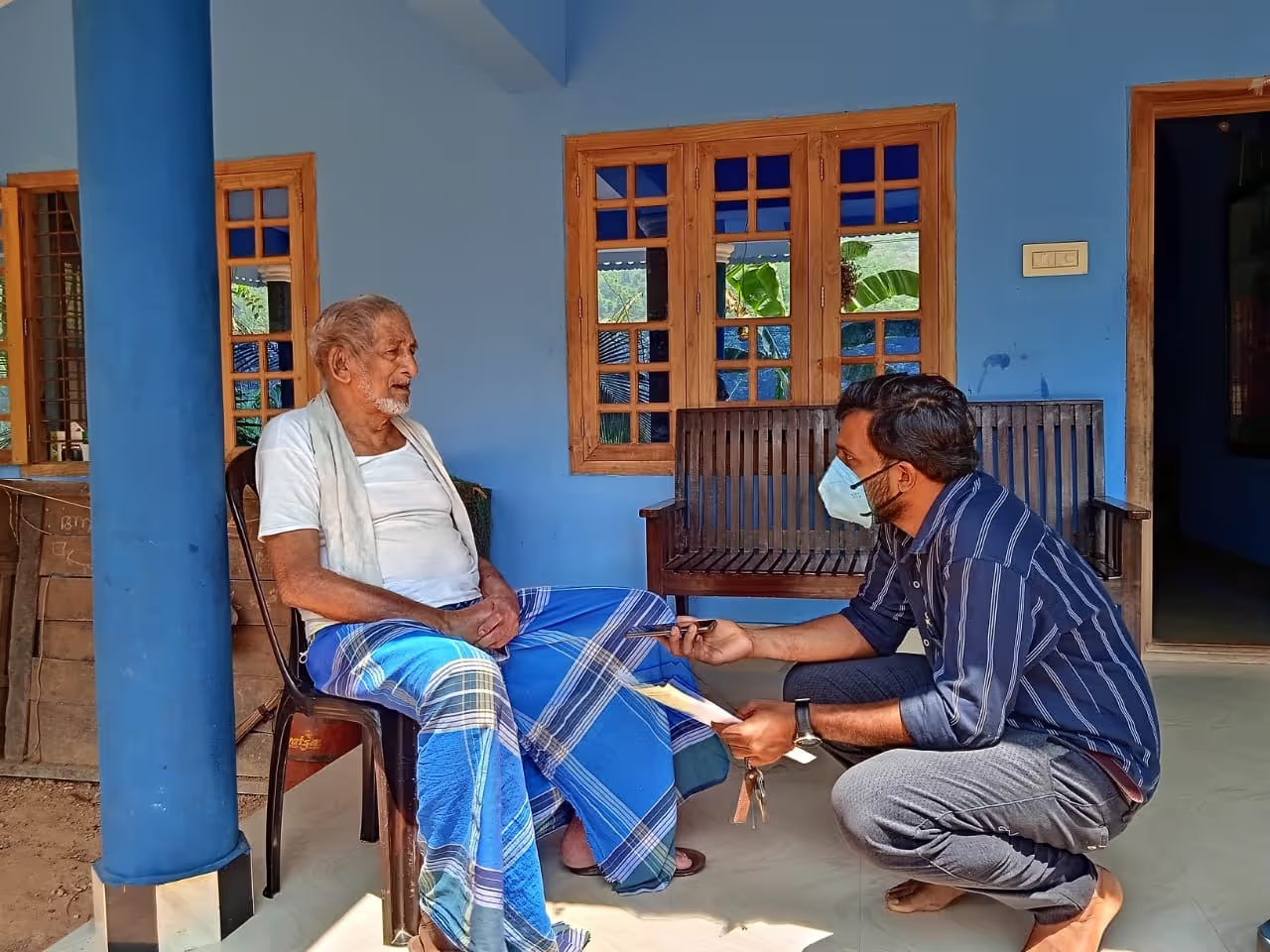Launching our disability and older age inclusion innovation catalogue

Innovations to improve access for people with disabilities in humanitarian response
Over 1 billion people are estimated to experience disability. This is 15% of the world's population. However, this is just one statistic, and does not reflect the extent of the unacceptable and often insurmountable challenges older people and people with disabilities face. This is especially true in the context of humanitarian emergencies. Today, the International Day of Persons with Disabilities, is a pivotal moment to envision transformational and innovative approaches to ensure people have full and equitable access to services and can participate in decisions that affect their lives.
With innovation at its heart, we welcome this year’s theme of “transformative solutions for inclusive development: the role of innovation in fuelling an accessible and equitable world”, as we prepare to launch our first Disability and Older Age Inclusion Innovation Catalogue next week. The catalogue profiles the work of many organisations that are at the forefront of testing and implementing innovations to improve equity and access for older people and persons with disabilities in humanitarian emergencies.

But why now?
Although slow, we know that progress has been made. Since the 2016 World Humanitarian Summit we’ve seen some traction in terms of bringing inclusion as a prerequisite for accountable, quality and people-centred humanitarian action. The release of the Humanitarian Inclusion Standards for Older People and People with Disabilities and the Inter-Agency Standing Committee (IASC) Guidelines on inclusion of persons with disabilities in humanitarian action are just two examples of inter-agency efforts made to help the sector become more inclusive.
In parallel, at global and country levels, stronger and better coordination has taken shape through the establishment of the Disability Reference Group and Age and Disability Working Groups in countries such as Pakistan and Bangladesh. As a result, these bring more consistently the voices of these underrepresented groups and share good practice.
Yet, it is not enough. And nor does it represent the innovations that often happen within smaller, grassroots organisations that are much more connected to the realities and challenges that older people and persons with disabilities face in different contexts. Much more can still be done to support meaningful participation for humanitarian action which is inclusive.
The catalogue and the resources created by the innovators include rich reflections on challenges and opportunities, which we hope the wider sector will find useful
The catalogue of innovations
Based on the Humanitarian Innovation Fund’s (HIF) 2020 Gap Analysis on the inclusion of people with disability and older people in humanitarian response, the innovations profiled within the catalogue specifically seek to address some of the gaps identified, including innovations in our recent challenges focused on inclusive preparedness and meaningful participation. The catalogue profiles the range of innovations supported through the HIF, many of which focused on gaining deeper understanding of the problem to underpin further innovation. This research has helped to build a more detailed and layered picture of the experiences of older people and people with disabilities in humanitarian contexts and the barriers they face to inclusion.
The catalogue is unique. It is not simply a list of innovations. It provides valuable insights into the contextual barriers to inclusion, illustrating the complex intersections between disability and older age in different cultural contexts and humanitarian settings. Insights which are crucial for innovations to meaningfully overcome the barriers experienced.
The innovations also highlight the experiences of conducting research and innovation with people with disabilities and older people and their representative organisations taking an active role. This approach has required many innovators to work differently and adapt their practice and explore the value in diverse partnerships. In the catalogue, and the reports and resources created by the innovators, there are reflections that the sector can learn from about what works well, what challenges are faced along the way, and what can be improved for the future.
We look forward to sharing the catalogue and hope it can contribute to further innovation and progress towards more equitable and inclusive action in humanitarian response.
Read the innovation catalogue
Based on the Humanitarian Innovation Fund’s 2020 Gap Analysis on inclusion of older people and people with disabilities, this catalogue profiles innovations that have sought to address some of the gaps identified. The report also provides evidence of the experiences and barriers to inclusion that older people and people with disabilities face across a range of humanitarian themes and contexts.
[.cta_link]Read the calogue[.cta_link]
Stay updated
Sign up for our newsletter to receive regular updates on resources, news, and insights like this. Don’t miss out on important information that can help you stay informed and engaged.
Explore Elrha
Learn more about our mission, the organisations we support, and the resources we provide to drive research and innovation in humanitarian response.